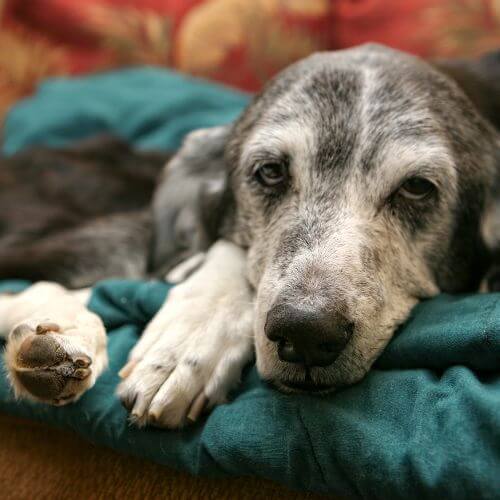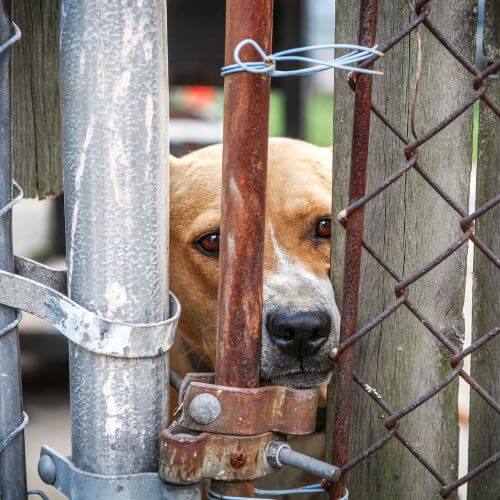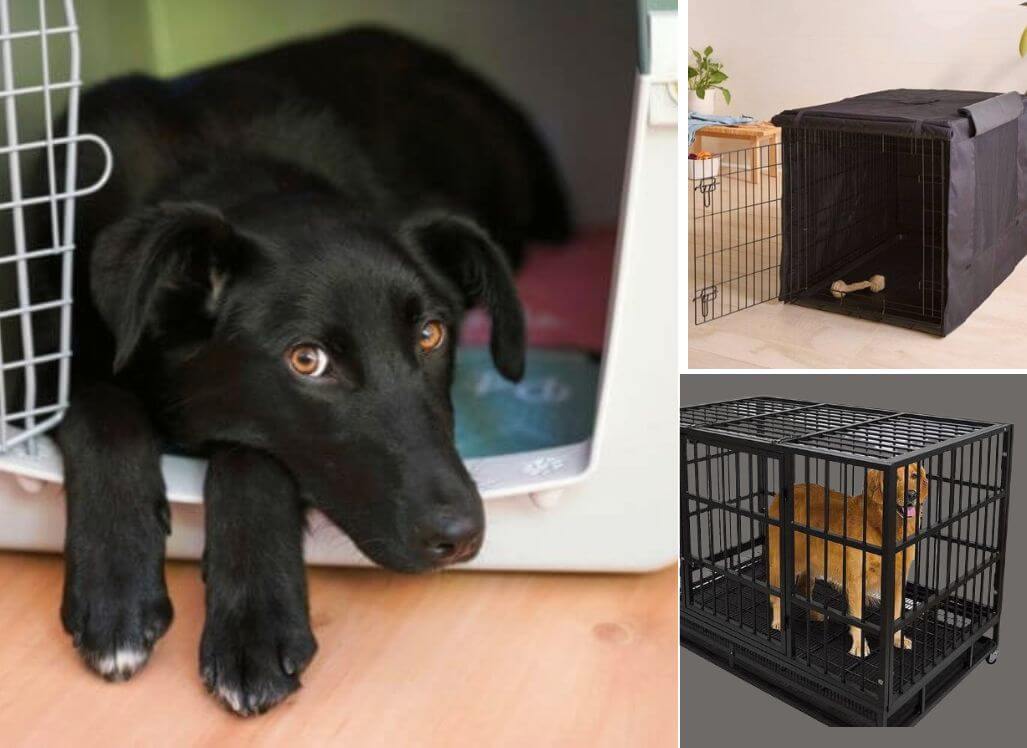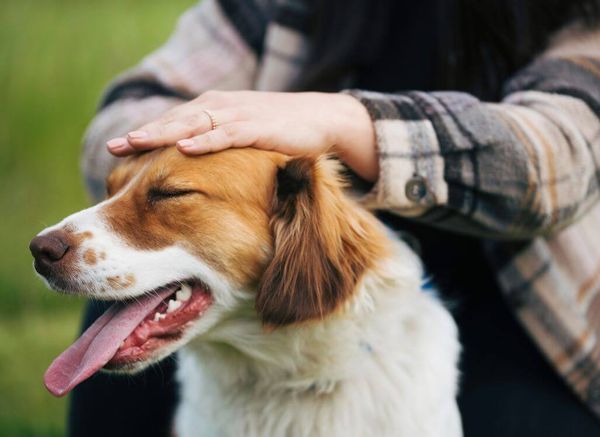Anxiety is a common issue among dogs, and it can manifest in different ways. While some dogs may become destructive and others may appear timid, it’s important to recognize that anxiety can have many different causes.
Understanding what triggers your dog’s anxiety is critical to addressing the issue effectively. Identifying the root cause of your dog’s anxiety can help you implement the right measures to help them overcome their anxiety and live a happier and more fulfilling life.
According to one Veterinary Hospital, 6 of the most common causes of dog anxiety are Fear Anxiety, Separation Anxiety, Age Anxiety, Anxiety due to an illness or painful condition, Anxiety due to a history of limited social contact, neglect and confinement, and General Anxiety.

Fear
Anxiety due to fear is a common experience for dogs, and it can be caused by a variety of factors. Loud noises, such as fireworks, thunderstorms, and even the vacuum cleaner, are a frequent source of fear for many dogs.
Dogs may also experience fear and anxiety when encountering new situations, such as meeting a new person or animal, or even visiting the vet. Additionally, a bad experience, such as being mistreated or injured, can leave a lasting impact on a dog's psyche and result in increased fear and anxiety.

Separation
Separation anxiety in dogs is a condition that can be distressing both for the dog and its owner. It's a behavioral problem characterized by excessive distress or anxiety when the dog is left alone or separated from its family members, such as when they go out to work.
Separation anxiety can also be triggered by other factors, including being rehomed, the loss of a family member or another pet, or even if someone they love moves away from home.

Age
As dogs age, they are susceptible to experiencing anxiety and confusion. This can be caused by cognitive dysfunction, which is a condition that affects a dog's brain function. The ASPCA lists anxiety or increased irritability as one of many symptoms in your senior dog that could indicate cognitive dysfunction.

Illness or other Painful Condition
Anxiety due to an illness or other painful condition in dogs is a serious issue that pet owners need to watch out for. Dogs with underlying medical problems are more prone to experiencing sudden bouts of anxiety. Painful conditions can cause discomfort and restlessness, leading to anxiety and stress.
Dogs are often unable to express their pain through verbal communication, and this may lead to anxiety or even aggression. To help manage anxiety due to illness or pain, pet owners should seek veterinary care to treat the underlying medical problem.

A history of limited social contact, neglect, or confinement
Dogs that have experienced limited social contact, have not lived in a stable and loving home, or had an enriching environment and socialization opportunities to build their confidence and emotional resilience, can also be prone to anxiety.
If they have experienced neglect or some form of confinement in their past, they may also develop anxiety issues. Pets who have lived in shelters may remember being abandoned and feeling helpless. There's also the potential that previous traumatic experiences were endured while in, or before arriving at, the shelter - all of this can create significant levels of stress in our furry friends.

General Anxiety
General anxiety often goes unrecognized. Sometimes the signs of dog anxiety may be subtle and don't seem particularly out of the ordinary, or the signs could be put down to the dog's personality. While the root cause of a dog's anxiety can sometimes be difficult to identify, if the behavior persists, it's important to seek professional help from a veterinarian or certified animal behaviorist.
In Summary
Understanding the various causes of anxiety in dogs is crucial in providing the necessary care and support for our furry friends. From genetics to environmental factors, there are many elements that can contribute to this condition. Recognizing the symptoms and taking proactive measures can help alleviate the distress and improve their quality of life.
While this article covers some of the common causes of anxiety in dogs, please be aware that it should not be used as a replacement for professional veterinary advice.
We urge you to seek professional medical advice if your dog is displaying signs of anxiety. Consult with a veterinarian or a qualified animal behaviorist to develop a personalized treatment plan that best fits your dog's needs. With proper care, love, and attention, you can help your canine companions overcome their anxieties and live healthy, happy lives.












